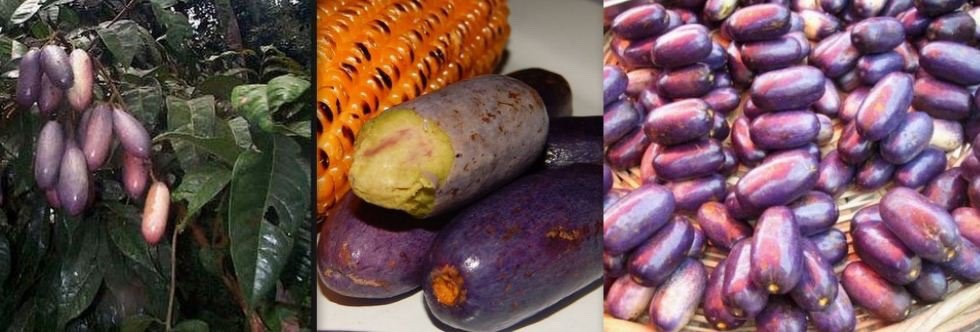African pear or bush pear is a native fruit of West Africa mainly found in Southeast Nigeria, popularly called Ube.
It is pleasant to eat it with roasted or cooked corn. It is pink in color when unripe but turns dark purple when ripped; It has a butter-like nature when roasted or dipped in hot water and is enjoyed by all.
Here are some health benefits of African Pear
The fruit plays an essential role in microbial activities as an antioxidant, anti-microbial, and anti-sickle cell disease.
These antioxidant and anti-microbial properties in bush pears are very active and practical at the new state and even when boiled.
They help to slow the effects of microorganisms on the body and ward off disease-causing organisms in the human body.
Bush pears help improve immunity due to vitamin C, which allows the immune system to resist certain diseases and maintain healthy immunity.
Immune boosting property in African bush pear comes from vitamin C and essential minerals that act as antioxidants that help strengthen immunity and improve the infection-fighting ability of the immune systems.
Pantothenate, known as vitamin B5, is an essential nutrient found in bush pears that helps synthesize protein, fats, and carbohydrates and contributes to the production of adrenal hormones and red blood cells.
They are rich in oil which contains several nutrients in the green-colored part when the purple flesh can helps treat some skin diseases such as ringworm, craw-craw, and related others.
According to nutritionists, the pulpy pericarp can be eaten raw or boiled and exhibits butter qualities, rich in minerals and oil, and are suitable for the skin.
Vitamin C is a potent antioxidant and a dietary supplement, just as riboflavin; both nutrients help to keep the skin glowing.
Soluble fiber content on bush pear is a suitable property that gives it the ability to reduce constipation, aid to a normal bowel movement.
This fiber contains pectin, cellulose, and lignin that resist the action of the digestive enzyme. Pectin helps to control diarrhea and binds substances in the intestine.
Bush pears have tiny clustered seeds enclosed by mesocarp, which is also nutritious and helps reduce blood pressure and the risk of stroke.
It is advisable to eat at least five portions of fruits per day, including African pears or related, due to its potassium contents that help lower high blood pressure and prevent the risk of stroke.
Promote Healthy Bones And Teeth
Some essential minerals such as calcium and phosphorus present in the fruit are the central players for healthy teeth and bones.
These minerals have critical roles in the skeletal system; calcium helps maintain bone health, muscle contraction immune system, and blood clotting.
Phosphorus on its own is vital for the formation and maintenance of healthy bones and teeth in both adults and children.
Regular consumption of this fruit helps fight against cancer because of the presence of phytochemicals, a micronutrient that fights against diseases in the human body.
Bush pears are a native African fruit eaten by all ages, both children and adults; they are classified as hypoallergenic fruit because they don’t cause any allergic reactions.
African pears are rich in vitamins and minerals that play essential roles in controlling the blood sugar level.
Carbohydrate content in African pears has a low glycemic index (GI). It is slowly digested and metabolized to hinder the spiking of blood glucose levels, which causes diabetes.
Studies have shown that regular consumption of this fruit slows the risk of macular degeneration in aged people.
The above statement is true for African pears because they exhibit strong antioxidants properties that help to prevent some age-related illness that causes poor vision.
You may be surprised to hear that African pear, called “Ube” in Igbo, is a pregnancy super fruit. It contains natural folic acid, which is very good in pregnancy.
The presence of folic acid in bush pears (African pears) helps prevent deficiencies in the baby’s brain and spinal cord.
African pear (ube) is rich in sugars, carbohydrates, fiber, folate, pantothenate, and vitamins such as vitamin B6, thiamine, niacin, riboflavin, and the antioxidant vitamin () C), which helps to fight the free radicals in the body.
African pears contain medicinal properties that make them useful for alternative medical doctors to treat various illnesses such as fever, wounds, dysentery, skin diseases, and others.(FRCN)
